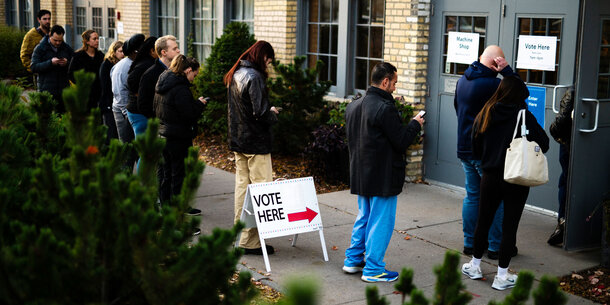Thirty years ago, Georgia’s Gwinnett County was at the heart of Republicans’ emerging southern powerbase, with politicians like Newt Gingrich riding a wave of white flight to the suburbs of cities like Atlanta to lay the groundwork for the modern GOP. In recent years, however, the Gwinnett County of Newt Gingrich has changed almost beyond recognition.
A county that was 90 percent white in 1990 when it was represented by Gingrich in Congress has become barely 35 percent white today. And with that change has come a political revolution, as new multiracial political coalitions have found footing and shaken up the political status quo up and down the ballot. Now, Republicans in the state legislature are pushing back with structural changes that seem designed to turn back the clock.
Since 2016, voters have elected candidates of color to county offices in quick succession for the first time. Gwinnett County voters elected Georgia’s first female Asian state senator as well as 20 Black women to state, county, and municipal offices. But these successes also have made Gwinnett into a focal point in the nationwide assault on the right to vote.
The attacks are coming at all levels. Earlier this year, the Georgia legislature enacted an aggressive vote suppression law that will disproportionately harm Black, Latino, and Asian voters. In December, Republican lawmakers rammed through gerrymandered maps that dismantle diverse, multiracial districts where candidates of color have enjoyed increasing success in recent years.
Up next, the legislature looks ready to go local, targeting the successes of communities of color in securing representation and policy victories in Gwinnett County, with GOP legislators putting forward proposals that would radically change the structure of the board of commissioners — its county level policymaking body — and alter how its school board elections would work.
As with many discriminatory policies, these seemingly neutral changes take clear aim at the increased diversity among Gwinnett County’s elected officials. Despite Gwinnett’s majority-minority status, no nonwhite person had ever been elected to the commission or school board prior to 2016. But by 2020, voters transformed the board of commissioners from all white to all people of color and elected Nicole Hendrickson as the first Black woman to chair the board, among other firsts.
Recent elections have also resulted in a similar evolution on the Gwinnett County Board of Education. In 2018, the first Black person (and the first openly gay member) was elected to the school board. In 2020, voters ousted two Republican incumbents and elected two Black women, creating a 3–2 Democratic majority on the board.
One bill, S.B. 5EX, would redraw district boundaries for the Gwinnett County Board of Education and make school board elections nonpartisan, eliminating a marker used by voters to gauge political positions. The proposed boundaries have been sharply criticized by Gwinnett County Public Schools, which determined that the new map would call for significant and unnecessary population reshuffling between school districts, cause voter confusion, and redraw a board member out of the district they currently represent.
A second bill, S.B. 6EX, would redraw the boundaries of the board of commissioners and double its size from 5 to 10 members, making it easier to reduce the share of seats held by minority members. The same bill would also strip the current chairperson, the first Black woman to hold the position, of most of her voting powers by allowing her to vote only as a tiebreaker. Although these bills did not advance during the legislature’s recent special session, the sponsor of the bills, State Sen. Clint Dixon (R) has said they will be back when the legislature reconvenes on January 10.
Regardless, there is cause for concern that these tactics could be proliferating. Lt. Gov. Geoff Duncan (R) has also tapped Dixon to chair a study committee on nonpartisan elections for local school board members across the state, potentially broadening the tactic of fueling voter confusion in areas with burgeoning communities of color.
Had these attacks come prior to 2013, they would have been reviewed by the Department of Justice or a federal court under the preclearance provisions of Section 5 of the Voting Rights Act for discriminatory impact. Georgia would have been barred from putting them into effect until they were determined to be nondiscriminatory. But the Supreme Court’s Shelby County v. Holder decision gutted preclearance requirements.
Unless Congress passes the John R. Lewis Voting Rights Advancement Act to bring the VRA back to full force, Georgia lawmakers will have free rein to pass these bills and put them into effect without any review. Voters may be able to challenge the new laws in court, but litigation, even if successful, could take years. All the while, the laws would remain in effect.
Gwinnett County is a canary in the coal mine for the new diverse, multiracial America taking shape around the country. Communities of color now make up over two-thirds of this formerly white-flight suburb, with substantial Latino, Black, and Asian communities. What is happening in Gwinnett at both the local and state levels is a harbinger of what is to come without stronger voting rights laws.



